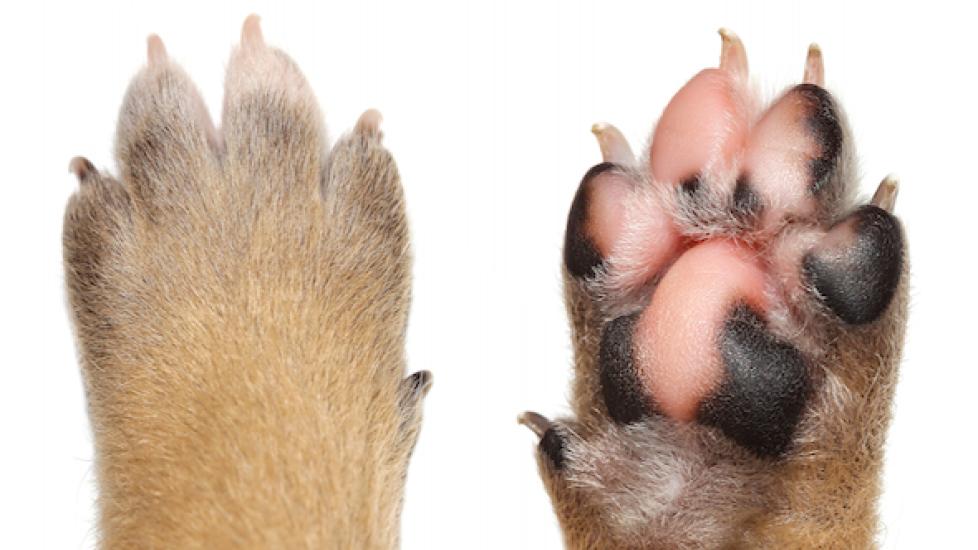Swollen Paws in Dogs
Swollen paws are a common problem for dogs. Although the condition is not usually dangerous, depending on the cause of the problem, it can be very uncomfortable and even highly painful as paws are very sensitive.
What To Watch For
Any sign of limping, favoring a leg, or hobbling must be investigated. Attention to the top and underside of the paws for swelling and pain is fundamental to an assessment of any kind of lameness.
Primary Cause
Swollen paws are often caused by a foreign object getting trapped between the pads/toes of the dog’s foot. Insect or spider bites, puncture wounds, broken toes, fractured claws, and constant licking/chewing (as with allergies or other source of chronic irritation) are other common causes. Pad burns from running on hot asphalt are also common during the summertime.
Immediate Care
-
Check the paw for objects caught between the pads/toes.
-
Check for insect stings or puncture wounds (though often hard to pinpoint).
-
If possible, remove trapped object with tweezers and wash the paw with warm, soapy water.
-
If you can’t see anything trapped in the paw, check the dog’s leg to ensure no constricting material is present (which can easily cause swelling).
-
Soaking the paw in an Epsom salt solution is often of benefit, regardless of the cause. Ten minutes in comfortably hot water (in a tub or basin) with Epsom salts dissolved within is typically an excellent short-term solution for swelling.
-
If you can see an obvious lesion, the swelling does not quickly disappear, or the dog continues to favor the paw, call your vet for further advice. Veterinary attention in these cases is almost always in order.
Prevention
Check your dog’s paws and pads for burns when you get home after exercising –– especially after running over, overgrown ground, jagged terrain, or hot asphalt. This is often a problem in the summer.
Help us make PetMD better
Was this article helpful?
